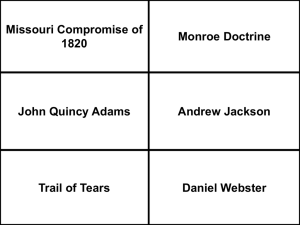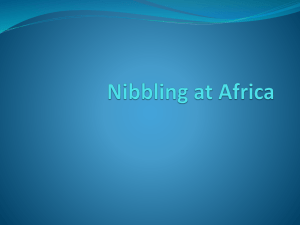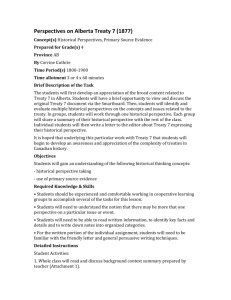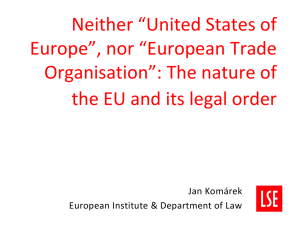Diapositivo 1 - Water my flower
advertisement
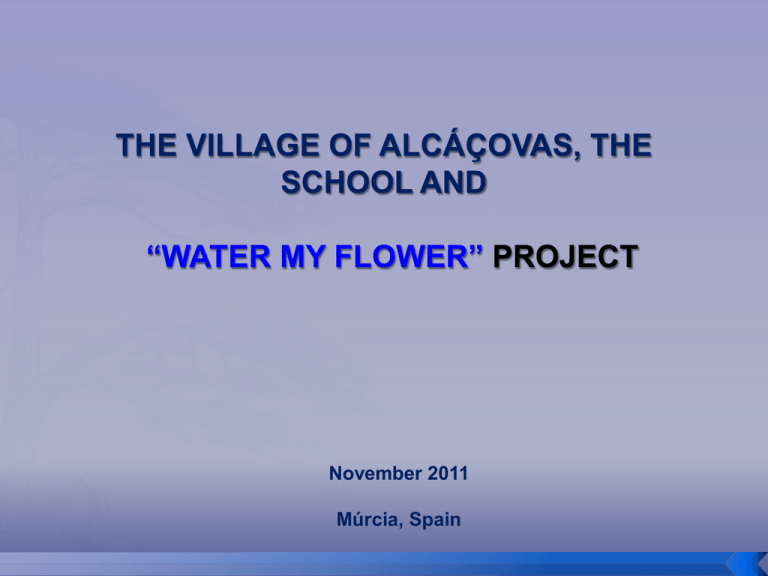
November 2011 Múrcia, Spain Situation/regional background Some pictures Evolution of the population Main activities Our school The Treaty of Alcáçovas Local Associations Location of Alcáçovas in Europe The Alcáçovas parish is situated in the Alentejo region- Évora district, Viana do Alentejo municipality The parish of Alcáçovas has an area of 268, 13 Km2. - Alcáçovas had na important role in the history of the world as it was here, on the 4th of September 1479, that the Treaty of Alcáçovas was signed putting an end to the Castillian Sucession War (1479-1480). The Henriques Palace where the Treaty of Alcáçovas was signed The Treaty of Alcáçovas – Toledo was one of the first peace treaties in the story of the world. It is one of the first international documents formally outlining the principle that European powers are empowered to divide the rest of the world into "spheres of influence" It was signed in Alcáçovas,1479, in Palácio dos Henriques by D. João II de Portugal and the Catholic kings of Spain- Queen Isabel e D. Fernando de Aragão. The treaty: - put an end to the War of the Castillian Sucession in favour of Isabella of Castille -confirmed Castilian control of the Canarian Islands and Portuguese control of the Madeira, Azores, Cape Verde islands all in the Atlantic Ocean Jardim das Conchas Shell’s Garden Ceiling of Conchas Chapel Main church of São Salvador Founded on 13th de December 1308 Hermitage of São Geraldo – 1599 Manor house of Fragosos de Barros – Barahonas 18th century Until the 50s there was a positive evolution in the growth of the population. Presently there has been a decrease of the population mainly in the 70s. 1940 Evolution of the population 1950 1960 1970 1980 1991 2001 4384 4541 2480 2329 2089 4314 2780 There has been a decrease in births and a progressive increase of the elder with more than 65 years old Population by age groups in 1991 Anos Número 0 a 14 % 15 a 64 % Mais de 65 % 267 12,8 1200 57,5 621 29,7 According to 2001 Census, 797 of the residents were employed, 63 were jobless Unemployment rate - 7,3%. People in this area works mainly in small manufacturing industries, agriculture, trade and services Production of cereals Harvesting of cork, wood and coal. Cattle raising Production of, wool, cheese and manufacturin g of different types of ITHE COWBELL INDUSTRY The cowbells of Alcáçovas are of very ancient origin. They are handmade and demand a very accurate and complicated technique. in order to achieve a proper Each cowbell has a symbol/draw that represents the brand of the manufacturer (kind of a coat of arms) They are worn in the necks of some animals (sheep, goats…)They serve as guides for the other animals when they are grazing. Museu do Chocalho Other industries Processing pepper (pimentão) . OPENING DATE-1988 Education levels: Kindergarten (3-5 year old) Primary school (4 years) (5/6- 9 year old) Middle school (5 years)( 9/10 – 14/15 year old) Number of children- 231 Number of classes- 11 Number of teachers- 29 School workers – 23 JARDIM “WATER MY FLOWER” OUR GARDEN – NOW!!





